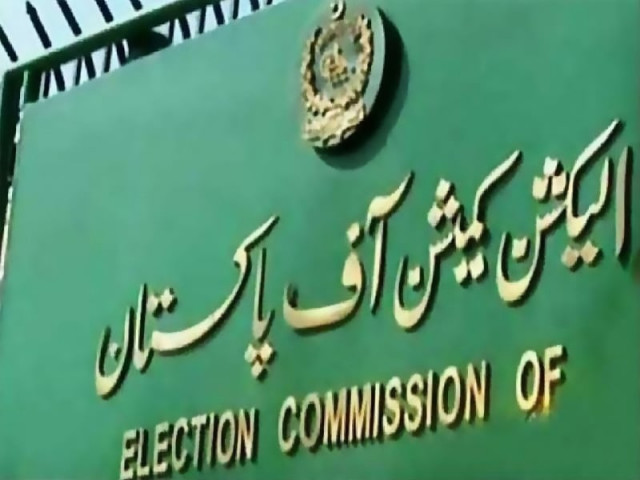Top poll body challenges SC's reserved seats order
Top poll body challenges SC's reserved seats order

The Election Commission of Pakistan (ECP) on Friday challenged the Supreme Court's explanatory order on September 14 on the issue of allocating reserved seats to the Pakistan Tehreek-e-Insaf (PTI), arguing that the court cannot re-write the Constitution under the guise of interpretation.
A 13-judge full bench of the Supreme Court had declared on July 12 that the opposition PTI was eligible to receive reserved seats for women and non-Muslims in the national and provincial assemblies on an appeal filed against the Peshawar High Court ruling.
Acting on the order of the apex court, the ECP notified 39 out of 80 members of the National Assembly (MNAs) as PTI members. For the remaining lawmakers, the electoral supervisor had sought guidance from the apex court.
On September 14, the Supreme Court rebuked the ECP for its "misconceived" request, seeking clarification from the top court on its verdict in the reserved seats case, and ordered the immediate implementation of its original directions.
On Thursday, the ECP again approached the Supreme Court, seeking guidance on the allocation of reserved seats to the PTI. On Friday, the electoral body filed another application requesting a stay of the court's order. Additionally, the ECP submitted supplementary documents related to its review appeal.
The review petition argued that the ECP was not responsible for the delay following the court's decision, noting that it had sought clarification on the July 12 judgment on July 25, but the court's response only came on September 14.
According to the petition, the court neither issued a notice to the ECP regarding PTI's documents nor sought the electoral body's response. The petition also mentioned that following the Supreme Court's clarification, parliament had enacted new legislation related to the matter.
In its review appeal, the ECP submitted further reports to the court, requesting a stay on the implementation of the decision until the review is resolved.
According to the ECP, the Constitution cannot be rewritten under the guise of interpretation. In the detailed judgment, which was announced earlier this month, the court deviated from its July 12 order, the petition stated.
The ECP said that in the detailed judgment, the court limited the PTI members to 41. It said that the term for independent members to join a political party was three days but the Supreme Court gave 15 days to those members, which was tantamount to changing the wording of the Constitution.
Furthermore, the ECP continued, independent members submitted affidavits of joining the Sunni Ittehad Council (SIC) but those sworn statements were completely ignored in the court decision. Declarations of party affiliation had not been submitted, it added.
It said that the documents submitted by the PTI in the judges' chamber were never presented in the open court, therefore, the PTI could not be given the relief of the reserved seats. The PTI did not even claim its right on any forum, therefore, the relief could not be given to the PTI, which was not a party.












1724319076-0/Untitled-design-(5)1724319076-0-208x130.webp)






COMMENTS
Comments are moderated and generally will be posted if they are on-topic and not abusive.
For more information, please see our Comments FAQ